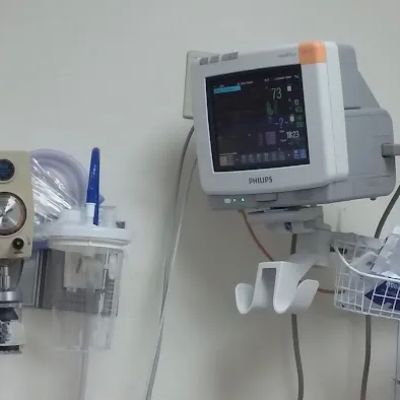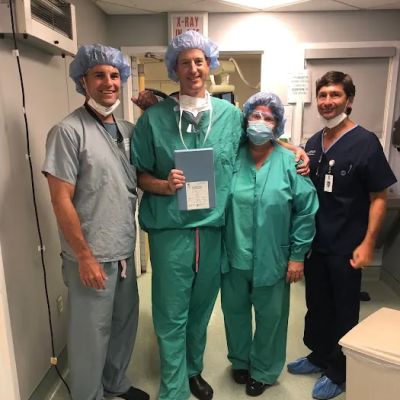- why-vaccinations-matter-for-heart-patients - Why Vaccinations Matter for Heart Patients
- key-vaccines-recommended-for-heart-health - Key Vaccines Recommended for Heart Health
- real-life-stories-and-lessons - Real-Life Stories and Lessons
- addressing-concerns-about-vaccine-safety - Addressing Concerns About Vaccine Safety
- how-to-incorporate-vaccines-into-heart-care - How to Incorporate Vaccines into Heart Care
Why Vaccinations Matter for Heart Patients
The importance of vaccinations for heart patients cannot be overstated. People with cardiovascular disease are more vulnerable to complications from infections like influenza, pneumonia, and COVID-19. These illnesses can trigger inflammation, strain the heart, and increase the risk of heart attacks or heart failure episodes. Vaccination acts as a protective barrier, reducing the likelihood of infection and the severity of symptoms if illness occurs.
For someone already managing conditions such as coronary artery disease or arrhythmia, avoiding unnecessary stress on the heart is critical. Preventive steps like immunization can be as essential as medication or lifestyle changes in protecting long-term health.

Key Vaccines Recommended for Heart Health
1. Influenza (Flu) Vaccine
The flu can cause severe respiratory and cardiac complications in heart patients. Annual flu shots have been shown to reduce hospitalizations and lower the risk of cardiac events in people with pre-existing heart disease.
Atlanta Heart Specialists
atlanta heart specialists
4375 Johns Creek Pkwy #350, Suwanee, GA 30024, USA

2. Pneumococcal Vaccine
Pneumonia is a serious threat to heart health. By vaccinating against pneumococcal bacteria, heart patients can significantly reduce the risk of lung infections that could escalate into cardiac emergencies.
3. COVID-19 Vaccination
COVID-19 can cause blood clotting and inflammation that directly affect the heart. Vaccination helps protect against severe outcomes, especially for those already living with cardiovascular issues.
4. Shingles Vaccine
While not directly related to heart disease, shingles can increase inflammation and stress in the body. For older heart patients, preventing shingles can help maintain overall stability in health.
Real-Life Stories and Lessons
James, a 67-year-old retired teacher with a history of heart failure, once skipped his flu shot because he felt healthy. That winter, he contracted influenza, which quickly developed into pneumonia. The illness caused a hospitalization and triggered a heart failure episode that took months to recover from. Since then, he’s been consistent with all recommended vaccinations, crediting them with helping him avoid similar health scares.
Stories like James’s highlight the tangible benefits of vaccines—not just for avoiding illness, but for preserving heart stability and preventing setbacks in recovery.
Addressing Concerns About Vaccine Safety
1. Safety Evidence for Heart Patients
Clinical studies consistently show that vaccines such as the flu shot and pneumococcal vaccine are safe for heart patients. Side effects are generally mild and temporary, such as soreness at the injection site or mild fatigue.
2. Consultation with Healthcare Providers
Before getting vaccinated, heart patients should discuss their current medications, recent procedures, and overall health status with their cardiologist or primary care physician. This ensures the timing and type of vaccine align with their treatment plan.
3. Avoiding Misinformation
Online myths about vaccine dangers often discourage people from taking necessary precautions. Relying on trusted health resources, like those offered by HeartCare Hub, helps patients make informed decisions.
How to Incorporate Vaccines into Heart Care
1. Making Vaccination Part of Routine Care
Integrating vaccine checks into regular cardiology visits ensures that no recommended immunizations are missed. This approach keeps protection up to date without requiring extra appointments.
2. Coordinating with Seasonal Health Needs
Scheduling flu shots in early fall and checking on pneumococcal or shingles boosters during annual exams keeps protection consistent throughout the year.
3. Community Resources
Local clinics, pharmacies, and health fairs often offer vaccines without long wait times. These community resources make it easier for heart patients to stay protected, especially if mobility or transportation is a concern.
By making vaccinations a regular part of heart care, patients can significantly reduce their risk of preventable illnesses and maintain better overall cardiovascular health.





















Deborah Heart and Lung Center
deborah heart and lung center
200 Trenton Rd, Browns Mills, NJ 08015, USA